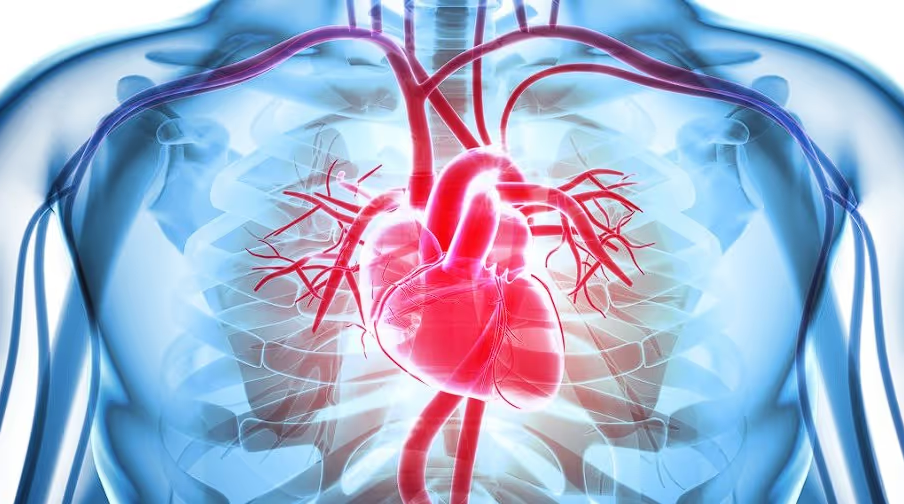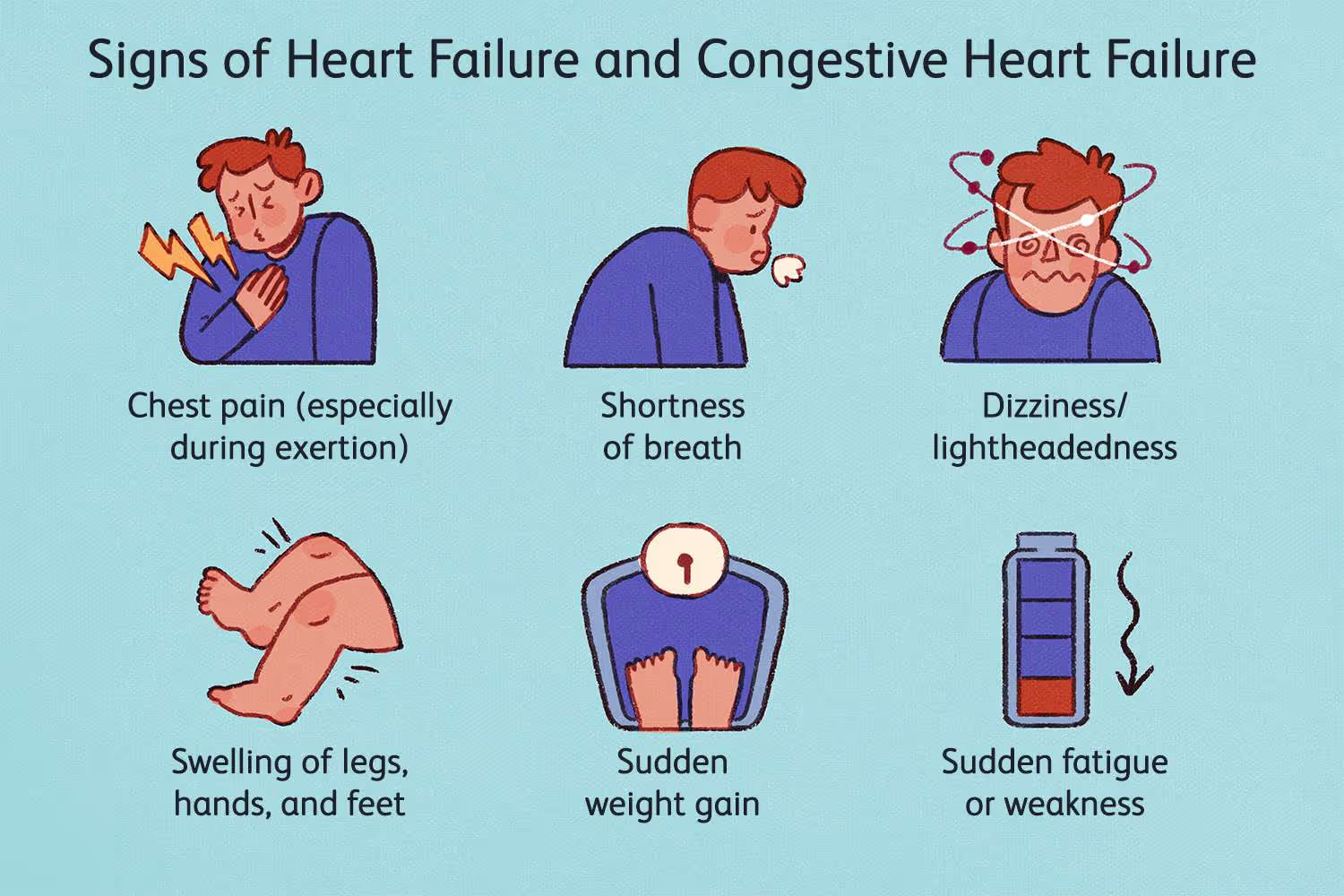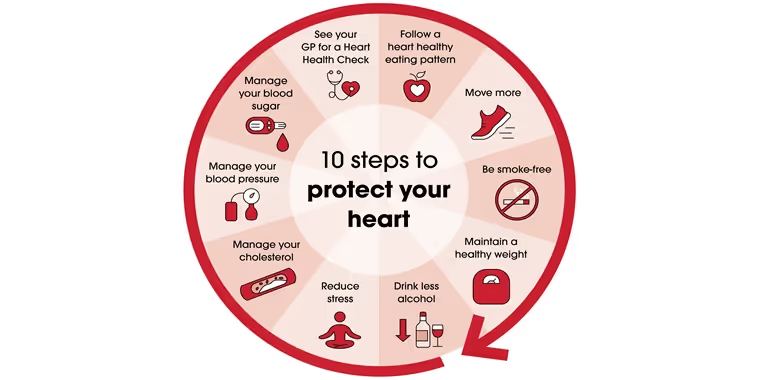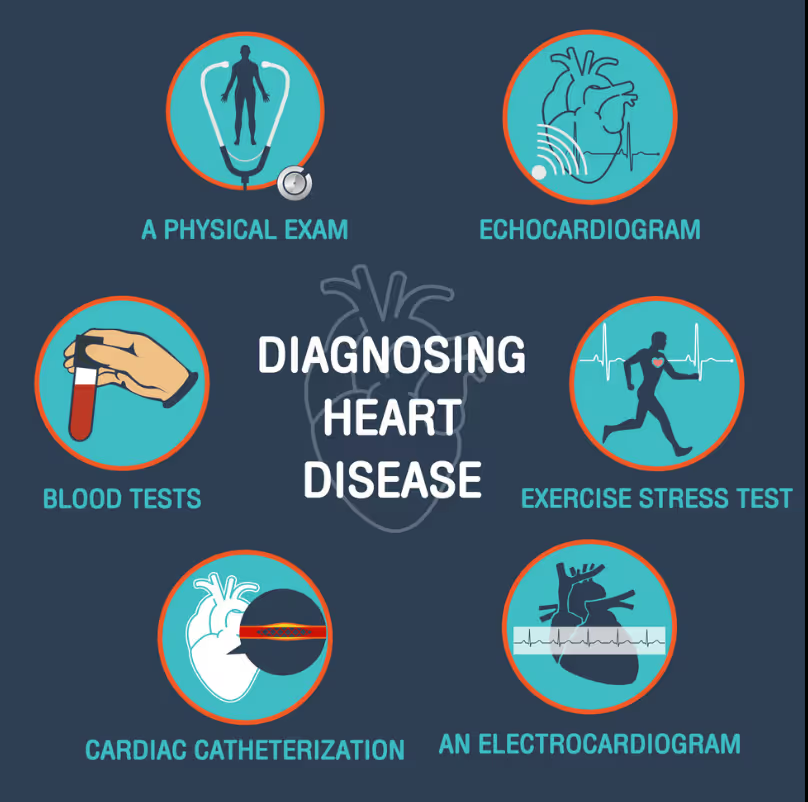Heart Health: Identifying Early Signs of Heart Diseases
Heart disease and heart failure are closely related conditions that can significantly impact your quality of life if left undetected. Get tests done today!

Heart disease is the leading cause of death worldwide — but many risks can be spotted early.

includes conditions affecting the heart and blood vessels (e.g. coronary artery disease, arrhythmias).
👉 Left unchecked, it can cause heart failure, heart attack, or stroke.
A chronic condition where the heart struggles to pump blood. Early signs like fatigue or shortness of breath can be managed if caught early.
We go beyond routine checkups with advanced diagnostics:
Early detection saves lives. With Everlab’s diagnostics and personalised plans, you can stay ahead of heart disease — and protect your future health.
Heart disease and heart failure are closely related conditions that can significantly impact your quality of life if left undetected. Heart disease refers to a range of issues affecting heart function, including coronary heart disease, which is a primary cause of heart failure. At Everlab, we offer comprehensive diagnostic tests, including blood panels and advanced imaging, to help you monitor and manage your heart health proactively.
Heart disease, also known as cardiovascular disease, encompasses a range of conditions that affect the heart and blood vessels. It stands as a leading cause of death worldwide, responsible for over 17 million deaths annually. The development of heart disease can be influenced by a combination of genetic, lifestyle, and environmental factors, including high blood pressure, high cholesterol, smoking, and a poor diet.
Heart disease can lead to severe complications such as heart failure, heart attack, and stroke. Understanding the risk factors for heart disease is crucial for prevention. By adopting a healthy lifestyle—incorporating a balanced diet, regular exercise, and effective stress management—individuals can significantly reduce their risk of developing heart disease. Proactive measures in maintaining heart health can make a substantial difference in long-term well-being.
Heart failure, often referred to as congestive heart failure (CHF), is a chronic condition where the heart struggles to pump enough blood to meet the body’s needs. Recognizing heart failure symptoms, such as shortness of breath and fatigue, can significantly improve management and outcomes. While heart failure may sound alarming, recognising the early signs can significantly improve management and outcomes.
Heart disease refers to a broad category of conditions that affect the heart, including coronary artery disease, arrhythmias, and valvular heart disease. Congestive heart failure, on the other hand, is a specific condition where the heart becomes too weak or stiff to pump blood efficiently. Systolic heart failure, also known as heart failure with reduced ejection fraction (HFrEF), occurs when the heart muscle is too weak to pump blood effectively. Heart disease can lead to heart failure, but not everyone with heart disease will develop heart failure.
Older adults, especially those over 65, are at higher risk for heart failure due to age-related weakening of the heart muscle. Other high-risk groups include individuals with high blood pressure, coronary artery disease, diabetes, and smokers. People with obesity or a sedentary lifestyle also face increased risks. Managing these risk factors through regular health screenings, lifestyle changes, and early detection can prevent or slow the progression of developing heart failure.
Yes, you can measure your heart age through various assessments that estimate the age of your heart based on risk factors like blood pressure, cholesterol levels, smoking habits, and lifestyle choices. Heart age and other biological age calculators provide insights into how your heart health compares to your chronological age.
High blood pressure, or hypertension, is a major risk factor for heart disease. It can cause the hardening and narrowing of the arteries, which reduces blood flow to the heart and increases the risk of heart attack and stroke. Factors contributing to high blood pressure include genetics, obesity, physical inactivity, and a poor diet.
Managing high blood pressure is essential for reducing the risk of heart disease. This can be achieved through lifestyle changes such as maintaining a healthy weight, exercising regularly, and following a heart-healthy diet. In some cases, medication may be necessary to control high blood pressure. Regular monitoring and proactive management are key to maintaining optimal heart health.
In addition to high blood pressure, several other risk factors can increase the likelihood of developing heart disease. These include:
Understanding these risk factors allows individuals to take proactive steps to reduce their risk of developing heart disease. This includes maintaining a healthy lifestyle, managing chronic conditions, and seeking regular medical check-ups. By staying informed and proactive, individuals can better protect their heart health and overall well-being.

Here are some of the earliest symptoms of heart failure to look out for. Note that this is not an exhaustive list. If you are concerned about any of your symptoms, please see a medical practitioner and they will guide you on the next steps for testing and if necessary, treatment.
The progression of heart failure varies from person to person. Mild heart failure can remain stable for years with proper management, but without treatment, it can gradually worsen. Risk factors like high blood pressure, diabetes, and lifestyle choices such as smoking or a poor diet can accelerate the progression.
Heart failure can impact daily activities by reducing your energy levels and causing symptoms like fatigue and shortness of breath. People with heart failure often experience significant symptoms that impact their daily activities and quality of life. You may find it harder to perform physical tasks that were previously routine, such as walking or climbing stairs. Lifestyle adjustments, such as avoiding heavy lifting and taking breaks to rest, may become necessary.
With appropriate management, lifestyle changes, and medications, many people with mild heart failure can live for years or even decades. The key is early intervention and consistent management. Regular diagnostic tests, such as blood panels, echocardiograms, and stress tests, can help monitor heart function and catch any decline before symptoms worsen.
While heart failure itself is not curable, its symptoms can often be managed effectively. Diastolic heart failure, also known as heart failure with preserved ejection fraction (HFpEF), occurs when the heart muscle can pump blood effectively but fails to stretch properly. In some cases, particularly if the underlying cause is treatable (e.g., high blood pressure or a valve issue), heart function can improve. However, for many people, heart failure remains a lifelong condition that requires ongoing care.
Exercise is one of the most effective ways to manage heart failure and can, in some cases, improve heart function. Regular physical activity strengthens the heart muscle, improves circulation, and helps reduce symptoms like fatigue and shortness of breath. To test your aerobic capacity, a VO2 Max test can be used.

Preventing heart failure involves managing risk factors and adopting heart-healthy habits. Actions that you can take include:

At Everlab, we offer a comprehensive range of diagnostic tests, including blood panels and physical assessments, that can help monitor your heart health and detect early signs of potential issues. Heart failure can be diagnosed through a combination of tests, including:
Coronary CT Angiography (CTCA) is a non-invasive imaging test that uses advanced CT scans to create detailed images of the coronary arteries. These arteries supply blood to the heart, and CTCA helps identify blockages or narrowing that can lead to heart failure or heart attacks. Unlike traditional angiography, which involves inserting a catheter into the arteries, CTCA offers a less invasive alternative with minimal risk.
Heart failure is a progressive condition, meaning it gets worse over time if left untreated. The sooner it is detected and managed, the better the outcome. At Everlab, we’re committed to supporting your health journey with advanced diagnostic tools and personalised health plans. Whether you're looking to check your heart health or manage existing conditions, we provide a holistic, proactive approach to preventive healthcare.
Early detection and ongoing management can drastically improve quality of life and slow the progression of heart failure. Our range of services, including comprehensive blood panels and imaging tests like CTs, and MRIs, can help identify potential issues before they become serious.
Even without symptoms, having risk factors like high blood pressure, diabetes, or a family history of heart disease means you could still be at risk for heart failure. Many people with these risk factors may not show signs until the condition has progressed. That’s why routine health check-ups and preventive screenings at Everlab are essential. Early intervention helps catch issues before they become severe, offering a better chance for successful management.
If you experience symptoms like shortness of breath, fatigue, or swelling, it’s important to seek medical advice. Early diagnosis can help manage the condition more effectively. Everlab offers a range of tests, including blood panels and imaging, to assess your heart health and detect early signs, and your doctor will recommend any further steps you should take. For any emergencies, call triple zero (000).




Join 1000's of Australians improving their health with proactive, personalised healthcare.